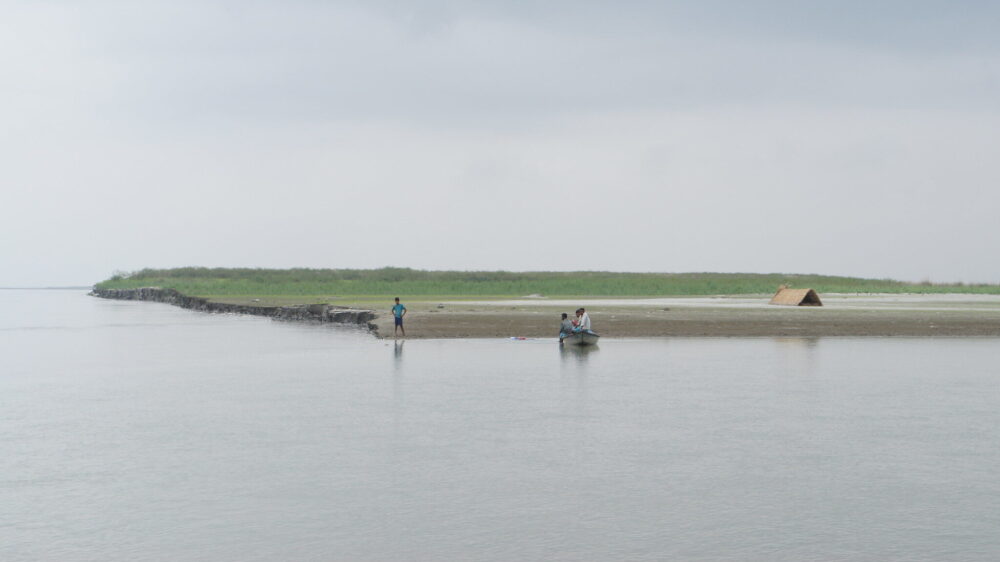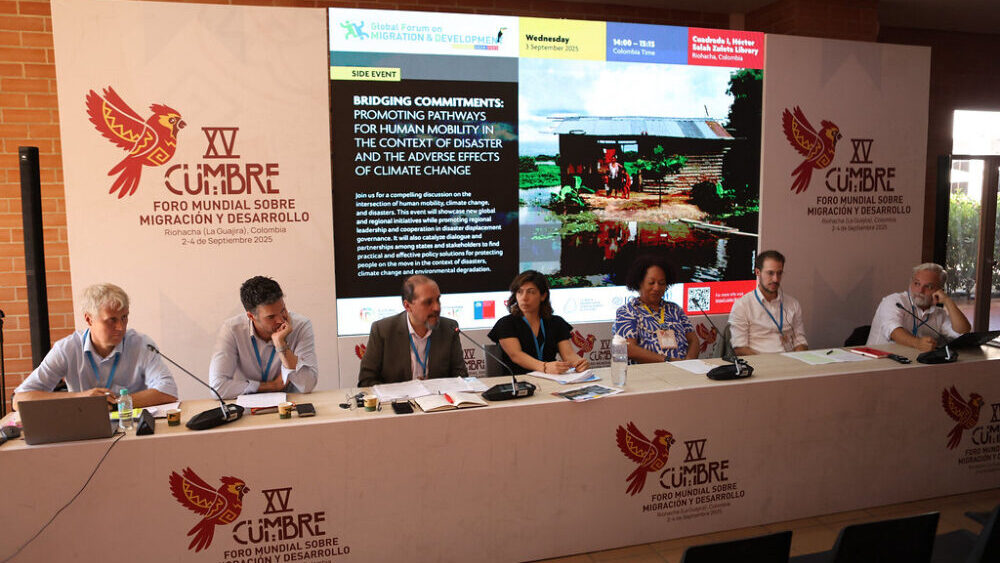Virtual Event | Displacement in Times of Disasters and Climate Change

Joint Meeting of the Group of Friends of the UN Secretary-General’s High-Level Panel on Internal Displacement and the Group of Friends of the Platform on Disaster Displacement
Displacement in Times of Disasters and Climate Change: Consultation on Coordination for Solutions and Financing
11 May 2021
“No region or country is spared from the devastating effects of disasters and climate change. The number of internally displaced persons due to these causes is rising,” said Mr. Mitiku Kassa Gutile, Member of the UN Secretary-General’s High-Level Panel on Internal Displacement (the Panel) as he opened the joint meeting of both the Panel’s and the Platform on Disaster Displacement (PDD)’s Groups of Friends on 11 May 2021. “Stepped -up action is urgently called for, which the Panel is exploring in its work,” he added, “only if we can tackle these issues as a global shared responsibility can we overcome the challenges ahead.”
Convened by the Co-Chairs, respectively, of the Group of Friends of the PDD and the Group of Friends of the Panel, the Consultation on Coordination for Solutions and Financing saw representatives of Member States from both Groups of Friends discussing the need to shift thinking toward proactive and collaborative approaches to developing durable solutions for persons displaced internally, in the context of disasters and the adverse effects of climate change.
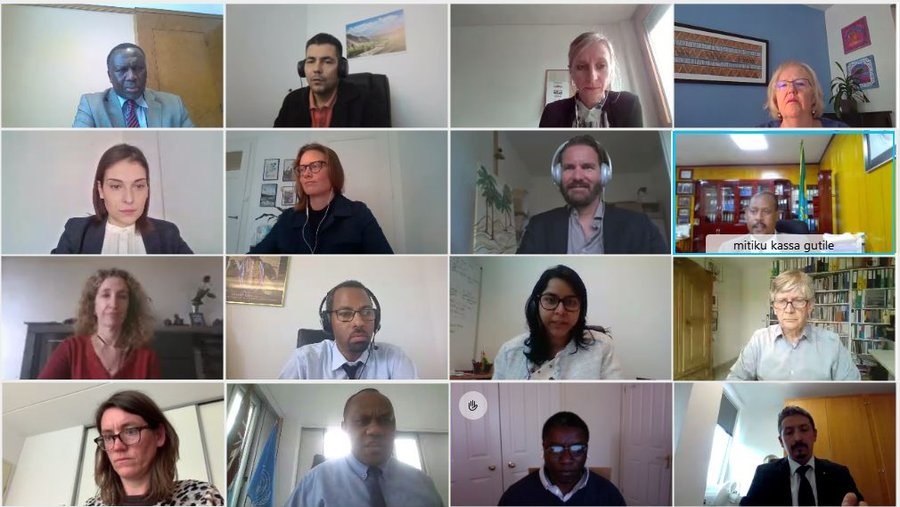 Results of the Panel’s recent consultations thus far were presented by the Panel’s Secretariat and underline the importance of supporting whole-of-government approaches to ensure proactive and durable solutions to address internal displacement, in the context of disasters and climate change as much as in conflict. Upon the Panel’s invitation, over 90 submissions from a wide range of stakeholders including Member States, UN agencies, NGOs, researchers and think-tanks have been received and, despite the challenges posed by the COVID-19 pandemic, a number of consultations, including with IDPs, have been conducted. Among the submissions received, about two thirds emphasized the key role of disasters and climate change in contributing to displacement. Submissions also stressed the need to address the challenges of sudden-onset, slow-onset, and multi-hazard disasters, as well as the ways in which disasters intersect with conflict and other risks.
Results of the Panel’s recent consultations thus far were presented by the Panel’s Secretariat and underline the importance of supporting whole-of-government approaches to ensure proactive and durable solutions to address internal displacement, in the context of disasters and climate change as much as in conflict. Upon the Panel’s invitation, over 90 submissions from a wide range of stakeholders including Member States, UN agencies, NGOs, researchers and think-tanks have been received and, despite the challenges posed by the COVID-19 pandemic, a number of consultations, including with IDPs, have been conducted. Among the submissions received, about two thirds emphasized the key role of disasters and climate change in contributing to displacement. Submissions also stressed the need to address the challenges of sudden-onset, slow-onset, and multi-hazard disasters, as well as the ways in which disasters intersect with conflict and other risks.
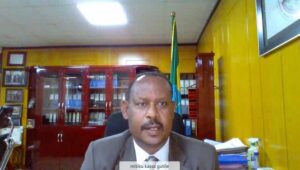
Mr. Mitiku Kassa Gutile reiterated the importance of coordination: it is essential that solutions are nationally owned and applied through whole-of-government approaches. In placing national governments in the driving seat, they emphasized the role of international actors as essential supporting mechanisms to assist in building technical capacity and encourage synergies between relevant global agendas such as the Sustainable Development Goals, Paris Agreement and Sendai Framework for Disaster Risk Reduction. This notion was mirrored by Member States throughout ensuing discussions, emphasizing the importance of coordination in ways that support nationally owned, integrated approaches to displacement through the triple nexus of humanitarian, development and peace.
Interventions were made by representatives of Afghanistan, Ethiopia, the European Union, Fiji, Mauritius, Morocco, Netherlands, Norway, and members of the Panel’s Expert Group. Representatives took the floor to describe their country’s respective national policies addressing internal displacement, elaborating on the need for whole-of-government approaches supported by robust coordination mechanisms, political commitment and visibility.
On the second consultation topic, the question of financing, Member States spoke of the vast gaps in the current financing landscape, underlining the need to invest in financing mechanisms that support both catalytic funding and longer-term funding. The potential capacity to enhance and scale-up existing funding mechanisms, such as Forecast Based Financing and ‘climate insurance’ funding models, was also highlighted.
In addition, some Member States called for new or creative financing solutions to assist countries to pursue prevention, preparedness and solutions to displacement more systematically. Recommendations included transitional funding mechanisms efficiently blending humanitarian and development spaces, multi-year financing mechanisms to facilitate effective implementation of durable solutions and the establishment of funding criteria in existing financing solutions to encourage and support future programs incorporating people-oriented solutions.
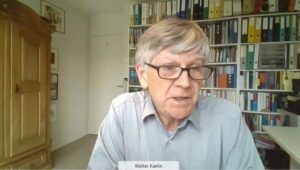 In his closing remarks and with regard to solutions, Prof. Walter Kaelin, Envoy of the Chair of PDD and member of the Expert Advisory Group for the Panel, highlighted Member States’ calls for home-grown solutions. In addition, he emphasized the growing need to shift thinking toward a proactive approach – a view articulated by a number of Member States – in order to significantly increase prevention, mitigation and preparedness efforts for early action to anticipate and secure resources for recovery and durable solutions.
In his closing remarks and with regard to solutions, Prof. Walter Kaelin, Envoy of the Chair of PDD and member of the Expert Advisory Group for the Panel, highlighted Member States’ calls for home-grown solutions. In addition, he emphasized the growing need to shift thinking toward a proactive approach – a view articulated by a number of Member States – in order to significantly increase prevention, mitigation and preparedness efforts for early action to anticipate and secure resources for recovery and durable solutions.
“We have to look at the underlying causes – finding durable solutions is the best way to prevent the reoccurrence of displacement,” concluded Prof. Kaelin.
This meeting was convened by the Permanent Missions of Afghanistan, Ethiopia and Norway in Geneva and Mali and Norway in New York, co-chairs of the Group of Friends of the UN Secretary-General’s High-Level Panel on Internal Displacement and the Permanent Missions of the Kingdom of Morocco and the Delegations of the European Union in Geneva and New York, co-chairs of the Group of Friends of the Platform on Disaster Displacement.
Useful Links
Learn more about the PDD Group of Friends
Learn more about the UN Secretary-General’s High-Level Panel on Internal Displacement
To submit a written submission to the Panel please contact idpspanel@un.org
Learn more about PDD’s work in our Workplan 2019-2022:
